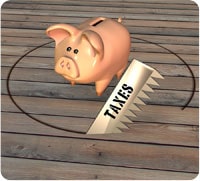Get a Free Consultation by one of our Tax Professionals
Get Started With A Free Consultation
Understanding a Tax Levy
 A tax levy is the legal seizure of a taxpayer’s assets by the Internal Revenue Service (IRS) or other taxing authorities to satisfy outstanding taxes owed. This action is one of the most severe collection mechanisms employed by the government and can significantly impact an individual’s or business’s financial situation.
A tax levy is the legal seizure of a taxpayer’s assets by the Internal Revenue Service (IRS) or other taxing authorities to satisfy outstanding taxes owed. This action is one of the most severe collection mechanisms employed by the government and can significantly impact an individual’s or business’s financial situation.
The Process of Levying Assets
When taxes remain unpaid, the IRS may levy various assets, including bank accounts, investment accounts, wages, social security benefits, pensions, insurance policies, and physical assets. Unlike an IRS tax lien, merely a claim against assets, a levy involves taking assets to settle the tax debt.
How to Deal with a Tax Levy From The IRS
Dealing with a tax levy requires immediate attention. Taxpayers should consider seeking professional assistance from a licensed tax professional, such as an attorney, enrolled agent, or certified public accountant, who can guide the best action. This may include filing an appeal, negotiating a payment plan, or exploring options for a levy release.
Preventing a Tax Levy
Staying compliant with tax obligations is crucial to prevent a tax levy. This includes filing returns on time, paying taxes due, and responding promptly to any notices from the IRS. Sometimes, setting up an installment agreement or an offer in compromise may be a viable solution to manage outstanding tax debts and avoid levying actions.
Impact on Individuals and Businesses
A tax levy can have far-reaching consequences for individuals and businesses. It can lead to the loss of income, seizure of assets, and damage to financial stability. For businesses, a levy on accounts receivable or business assets can disrupt operations and impact the ability to meet payroll or other financial obligations.
Understanding Your Rights
It is essential to understand your rights when facing a tax levy. Taxpayers are entitled to notice and an opportunity to appeal for IRS tax relief before a levy is imposed. Additionally, certain assets may be exempt from the levy, and taxpayers may have options to contest the levy or negotiate alternative arrangements with the IRS.
Conclusion
Understanding and knowing how to deal with a tax levy is essential for maintaining financial health. If you face a levy, seek professional advice immediately to explore your options and protect your assets.
For more information on tax levies and how to handle them, visit the IRS website or consult a licensed tax professional here at Clean Slate Tax.

